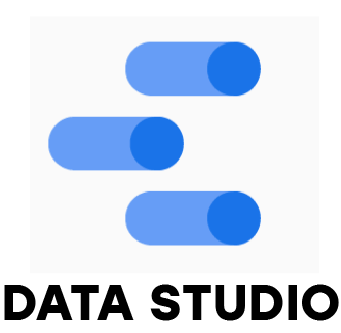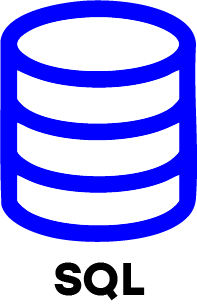Our Business Data Analysis Certification (CBDA) training program will assist you to acquire useful insights and promote informed decision-making in your organization by learning a number of methodologies, skills, and procedures. The CBDA certificates offered by the IIBA recognize your competence to carry out analytical work efficiently in support of business analytics efforts. In short, the data analysis/business intelligence project can serve a business analyst and collaborate with data experts.
Additional Info
Intro of CBDA :
The International Institute of BA (IIBA), Canada has launched the first certification in data analytics, the Business Data Analytics Award (CBDAA®). A Business Analyst Practitioner is recognized for their ability to perform analysis related tasks effectively in support of business analytics initiatives. This signifies their dedication, passion, and competence when performing business analysis related tasks.
IIBA®- CBDA tests a student's ability to answer scenarios connected to real-world business data. This exam utilizes information from the IIBA Guide to Business Data Analytics.
Introduction of Business Data Analytics :
Investing in the continuous exploration and investigation of business data is the essence of business data analytics, which is composed of a set of techniques, competencies, and practices. Data analytics in business is focused on providing insights into a company that improves decision-making based on evidence.
A business data analyst collects, analyzes and reports the most useful information relevant to a manager's requirements to assist managers in making strategic decisions, achieving major goals and solving complex problems. You may want to find out the causes of the current situation, what is likely to happen, and what can be done to correct it.
Potential strategies and solutions may be identified and verified, and tested to determine their feasibility. Statistical analysis involves an interactive and automatic process, using relevant, accurate and reliable information, as often as possible. Business analytics refers to the analysis of data in a business context.
Key Responsibilities of Business Data Analytics :
The ability to understand what a company does, especially the processes they use to accomplish their work.
- Evaluating how efficient, affordable, and effective those processes are.
- Making recommendations for process improvements, new technologies that have the potential to improve the company, and other areas where improvements can be made.
- Developing functional specifications for technology and processes that require a more substantial level of technical knowledge within the group.
- Planning and monitoring projects, ensuring timely completion of deliverables, and managing project resources.
- Provide business teams with information about changes, recommendations, and procedures.
- Keep business leaders informed about changes that will impact the organization's goals.
- Maintain a data system and database, and correct coding errors and other issues related to data.
- By mining primary and secondary data sources, then reorganizing them into formats that can be easily understood by humans and machines, this task can be accomplished.
- Analyzing data sets with statistical tools, paying attention to trends and patterns that might be useful for diagnostic and predictive analytics.
- Showcasing the relevance of the company's work in the context of national, global, and local trends that impact the organization and industry.
- Utilize relevant data to prepare executive reports to communicate trends, patterns, and predictions.
- Establishing policies for effective data governance by collaborating with programmers, engineers, and organizational leaders.
- Establishing documentation that explains the steps of the data analysis process and allows stakeholders to duplicate or replicate the work if necessary.
About Business Data Analyst :
Having business data analysts on your team is a good way to make your organization more productive. Business analysts and data analysts have similar roles, but the differences between them can be significant depending on where you work. Adding vital links between an organization's technological expertise and its business expertise is the job of business analysts. An analyst handles business data on a daily basis, so what do they do?
In the role of a business data analyst, you are responsible for analyzing the business and evaluating operational processes, modeling the business and suggesting new technological innovations. Moreover, a business data analyst must do data analysis, as well as identify the loopholes existing in current processes, products, services, and software.
In a broader sense, a business data analyst is responsible for identifying potholes in a business's operations and remedying them through complex data analysis techniques. In addition to general business growth and expansion, business data analysts also work on business data. In order to expand the business, the research team needs to identify new customer bases and avenues.
Most Valuable Skills :
Any specialization in business data analytics must possess a few general skills. The following skills are included:
Problem Solving : Achieving the highest level of performance when analyzing processes and procedures in order to formulate and apply appropriate solutions.
Process Improvement : Identifying areas of inconsistency and inefficiency in business processes and bringing them into focus.
Communication : Transforming high-level technical data, findings, and suggestions into information stakeholders can understand.
Critical Thinking : Successful business analysts must be able to process large amounts of highly complex information regularly.
Management of projects : A business analyst's role sometimes takes on the characteristics of that of a project manager. A change management process involves connecting business and technical team members, ensuring they work toward a common goal, and overseeing timelines, budgets, and priorities.
Programming Languages (R/SAS) : One language is required of data analysts, and a few others may be valuable as well. Among the programming languages used by data analysts are R and SAS for data collection, data cleansing, statistical analysis, and data visualization.
Creative and Analytical Thinking : A good data analyst should be curious and creative. The ability to think through problems creatively and analytically is just as important as a strong grounding in statistics. Consequently, the analyst will be able to generate intriguing research questions that will enhance the understanding of the topic at hand.
Strong and Effective Communication : No matter who the audience is - a group of readers, a small group of executives making decisions - data analysts must clearly communicate their findings. A successful business depends on strong communication.
Data Visualization : Trial and error are necessary for effective data visualization. Using the right graphs, sizing visualizations, and knowing which charts are appropriate for the audience are all key to being an effective data analyst.
Data Warehousing : The back end of the system is where some analysts work. A data warehouse is created by connecting databases from multiple sources and using querying languages to find and manage data.
SQL Databases : Unlike relational databases, SQL databases store structured data. Data analysts use different tables to pull information from to analyze data.
Database Querying Languages : The most common querying language data analysts use is SQL and many variations of this language exist, including PostreSQL, T-SQL, PL/SQL (Procedural Language/SQL).
Data Mining, Cleaning and Munging : Using other tools to gather unstructured data when data is not neatly stored in a database is needed for data analysts. Data is cleaned and processed by computer programs once the necessary information has been gathered.
Microsoft Excel Advanced : Ideally, data analysts should be proficient in Excel and possess a good understanding of modeling and analytics.
Machine Learning : Machine learning skills make data analysts extremely valuable, but machine learning isn't a typical skill for data analysts.
How Can You Become A Business Data Analyst?
In the current job market, business data analysts are in great demand. This means that if you're interested in getting into this industry, now is a great time to start. To get to the top of your field, what are the key skills you need? In the coming weeks, priorities should be set for the following.
- Analyzing popular data sources with advanced knowledge :
The key to standing out from the crowd is getting to know the key analytical tools available at the moment and to go in depth. A good place to start is to look at Google Analytics and Adobe Analytics.
- Developing reporting skills :
Reporting is a big part of your job, so you should be familiar with data visualisation software to understand all the information at your fingertips. This will help you draw your own conclusions and help others understand what's important.
- Structured query language :
Make it a top priority to really get to grips with this in the upcoming year. It is a massively important aspect of the industry. Having skills in this area may not be essential for every job you apply for, but it will provide you with an edge over your competitors.
- Communication skills :
Having this skill is essential for any job, but it's especially crucial for a career in data analysis. The data you possess must be presented concisely and in a compelling manner in order to meet the requirements of your clients.
Business Data Analysts - Their Importance in Today's World :
A business data analyst has a multifaceted role that involves managing a variety of aspects of an organization. The business data analyst carries a lot of responsibility, from acting as a bridge between the business and IT teams to finding opportunities for profitable growth. Business data analysts have become increasingly valuable in the modern era of digital technology.
It is data that makes the digital world run, and its power has taken over the real one. Data storage and usage volumes in the last decade dwarf those of today. In the future, there will be a greater demand for data analysis and data utilization. An organization's data metrics will increase the probability of evaluating business decisions carefully.
Data analysts analyze historical data to identify existing loopholes, improving system efficiency and optimum resource utilization, leading to significant savings for the organization. By freeing up resources, the group can embark on new projects with more flexibility. Data analytics and business analytics also differ in this respect.
An analyst of business data bridges the technological and non-technological departments. As a result, they are responsible for understanding the needs of non-IT units and planning a solution without throwing up any disagreements. By implementing new technological trends, businesses can also improve their performance, reduce the time required to complete certain tasks, and enhance their productivity.
Additionally, being able to make the digital transformation easier is another reason why business data analysts are essential for organizations today. The data-driven decisions they make help organizations optimize both their time and resources by simplifying the complexity of digital transformation.
Detailed Information on Business Data Analytics Salaries and Job Prospects
1. In today's business environment, there is an unprecedented need for business data analysts. Nevertheless, business data analysts are in short supply, which is causing this challenging position to become overburdened. This has created a peculiar situation where there is greater demand for business analysts than available talent, making it an attractive career prospect for those with a passion for business analysis.
2. To gain an edge over the competition, anyone interested in becoming a business data analyst can enroll in a Data Analyst Certification Course. For those seeking to make a career in data analysis, acquiring business data analyst skills can often lead to a rewarding career opportunity.
3. As a business data analyst, you'll earn a handsome salary. Several factors, including experience level, location, industry, and type of company, contribute to the exact figure. This role typically pays 7 lacs per year in India. Business analysts at e-commerce giants like Amazon earn approximately 17 lakhs per year on average. Businesses looking to hire specialists in business data analytics will continue to find jobs in high demand, and will earn more than before in this field.








































